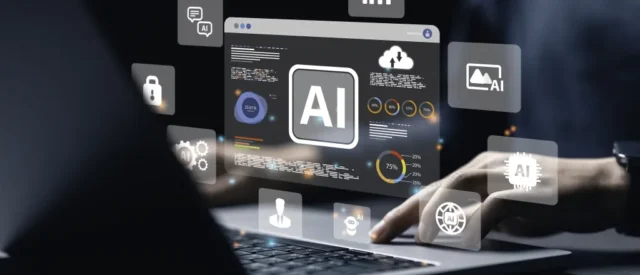Exploring Open-Source and Enterprise-Grade AI Agent Frameworks for Complex Workflows
As artificial intelligence becomes more embedded in enterprise ecosystems, AI agent frameworks are stepping into the spotlight. From workflow automation to multi-agent collaboration, these frameworks serve as the backbone for building intelligent, autonomous systems.
Whether you’re a CTO evaluating tools or an AI engineer architecting complex flows, choosing the right AI agent framework is critical to success.
Understanding AI Agent Frameworks
At their core, AI agent frameworks offer the building blocks for developing autonomous agents—software entities that can perceive their environment, reason, and take action to achieve defined goals.
They are especially powerful for:
- Decision-making under uncertainty
- Task delegation in dynamic environments
- Collaborative behavior across multi-agent systems
- Real-time adaptation and orchestration of actions
These frameworks bridge the gap between LLM-powered intelligence and real-world application logic—making them vital for use cases like robotic process automation (RPA), AI copilots, digital twins, and smart assistants.
Why Businesses Need Scalable AI Agent Frameworks
As organizations transition from simple automation to cognitive workflows, the demand for enterprise-grade agent frameworks is accelerating.
Key business benefits include:
- Modularity & Reusability: Quickly deploy plug-and-play AI agents for specific domains.
- Autonomy: Agents can operate without human intervention, adapting to inputs on the fly.
- Scalability: Handle increasing complexity across workflows, departments, and environments.
- Multi-Agent Collaboration: Assign agents to different subtasks for parallel problem-solving.
From customer support bots that learn from experience to supply chain agents negotiating optimal deals, frameworks enable agents to learn, reason, and act at scale.
Top Open-Source AI Agent Frameworks to Watch
1. LangChain
A Python framework that connects LLMs like GPT with tools, APIs, and memory. It’s especially useful for building agentic systems that perform multi-step reasoning tasks.
Use Cases: AI copilots, content generation workflows, dynamic retrieval systems.
2. Auto-GPT
One of the earliest experimental frameworks showcasing how LLMs can chain thoughts and actions together. It can act autonomously with minimal input.
Use Cases: Research agents, personal assistants, automation testing.
3. CrewAI
Designed for multi-agent collaboration, CrewAI allows you to define specialized roles for agents who then work together to complete complex workflows.
Use Cases: AI taskforces, creative collaboration, operational decision-making.
4. Haystack Agents
From deepset, Haystack supports retrieval-augmented generation (RAG) and can be extended with agent-based actions in document-heavy workflows.
Use Cases: Legal tech, finance automation, enterprise search agents.
Enterprise-Grade AI Agent Platforms
1. Microsoft Autogen
Supports scalable multi-agent LLM workflows with customizable logic and memory. It’s optimized for enterprise-grade orchestration and compliance.
Best For: Enterprises needing integrated agents within Microsoft ecosystems (e.g., Azure, Copilot).
2. IBM Watson Orchestrate
Enables business users to create no-code AI agents that automate daily tasks by integrating with enterprise apps.
Best For: Workflow automation across HR, sales, finance, etc.
3. Azilen’s Enterprise AI Agent Solutions
Azilen Technologies provides tailored AI agent development services—specializing in designing agents for complex industry workflows across fintech, healthtech, and manufacturing.
Best For: Custom intelligent agents designed for high-stakes decision-making and integration into legacy systems.
How to Choose the Right AI Agent Framework
| Criteria | Open-Source (e.g., LangChain, CrewAI) | Enterprise-Grade (e.g., Microsoft, IBM) |
|---|---|---|
| Customization Flexibility | High | Moderate (depends on platform) |
| Scalability & Governance | Medium (manual setup) | High (enterprise-ready) |
| Cost | Free / Low | Subscription-based / Custom pricing |
| Integration Support | Community-driven | Rich API & ecosystem integration |
| Use Case Maturity | Experimental to mid-stage | Production-ready workflows |
Conclusion: Building the Future with AI Agent Frameworks
As enterprises strive for intelligent automation and more human-like agents, the role of agent frameworks will only deepen. Whether leveraging open-source flexibility or relying on enterprise-grade scalability, choosing the right foundation will dictate how effectively you build smart, context-aware systems.
If you’re ready to design custom AI agents tailored to your business needs, Azilen can help you navigate the complexity—bringing the best of LLMs, data, and automation into one powerful solution.








Way cool! Some extremely valid points! I appreciate you penning this post and the
rest of the site is really good.